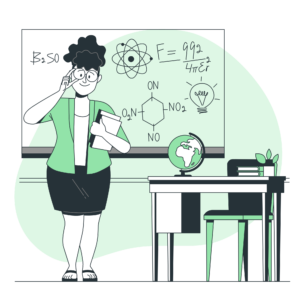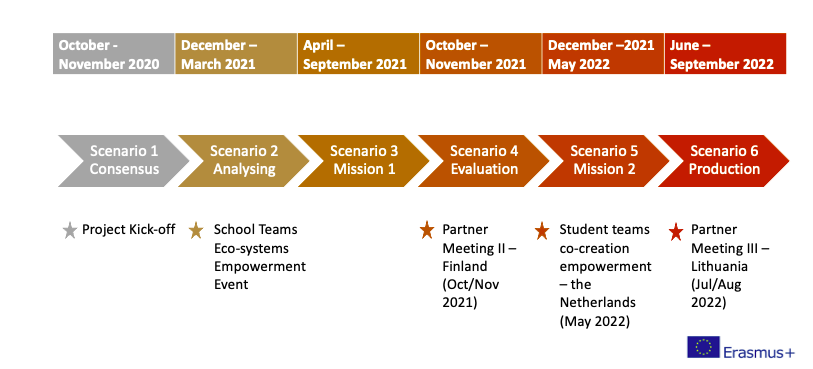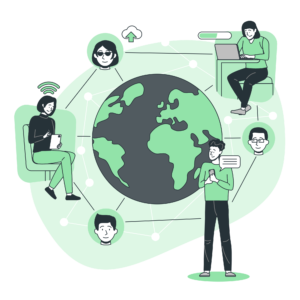
Encourage “open schooling” where schools, in cooperation with other stakeholders, become an AGENT OF COMMUNITY well-being; families are encouraged to become real partners in school life and activities; professionals from enterprise, civil and wider society are actively involved in bringing real-life projects into the classroom.
Commission 2015, Science Education for Responsible Citizenship
Background
The project idea is partly based on the extremely valuable lessons learned from the 30 months Open Science Schooling Erasmus+ Schools project, coordinated by the University of Eastern Finland.
The important lessons learned are:
- It is difficult for student teams when working in their science missions to build sufficient collaboration with community and science resources from scratch
- Student teams need when working in their science missions to be able to tap into already existing infrastructures of science resources and community collaboration resources, as recommended by the Commission
- The eco-systems of open science schooling should consist in permanent but dynamic basic resources supporting the student teams’ science learning; the student teams will create additional ad hoc collaboration with science resources according to the needs of the specific science missions
- This leads to a call for schools to – not only support the students’ open science schooling missions – but to become an agent in the community, as called for by the Commission and the OECD; this involves the school as organisation, not only as individual teachers and students
Core Concept
The ultimate mission of the project is to help secondary schools and science teachers take steps to change traditional science teaching into mission-based science learning in collaboration with permanent eco-systems of open science schooling resources – as this approach is expected to engage students in brand new ways and to help them create new and different images of what science is and could be for them.
So, how to “help” those schools and science teachers? Through qualified, realistic and relevant guidance.
How to produce this guidance? Through creating and testing such eco-systems of open science schooling in practice, in real-life and real-time. And through creating practical experience about how such eco-systems of science resources can help students engage in real-life and real-time science missions in the community.
In the ECO-SYSTEMS OF OPEN SCHOOLING this real-life and real-time testing of the eco-systems of open science schooling will include at least 50 secondary school students working through a total of 20 science missions, each of which will last between 4 and 6 months!
Project Overview




